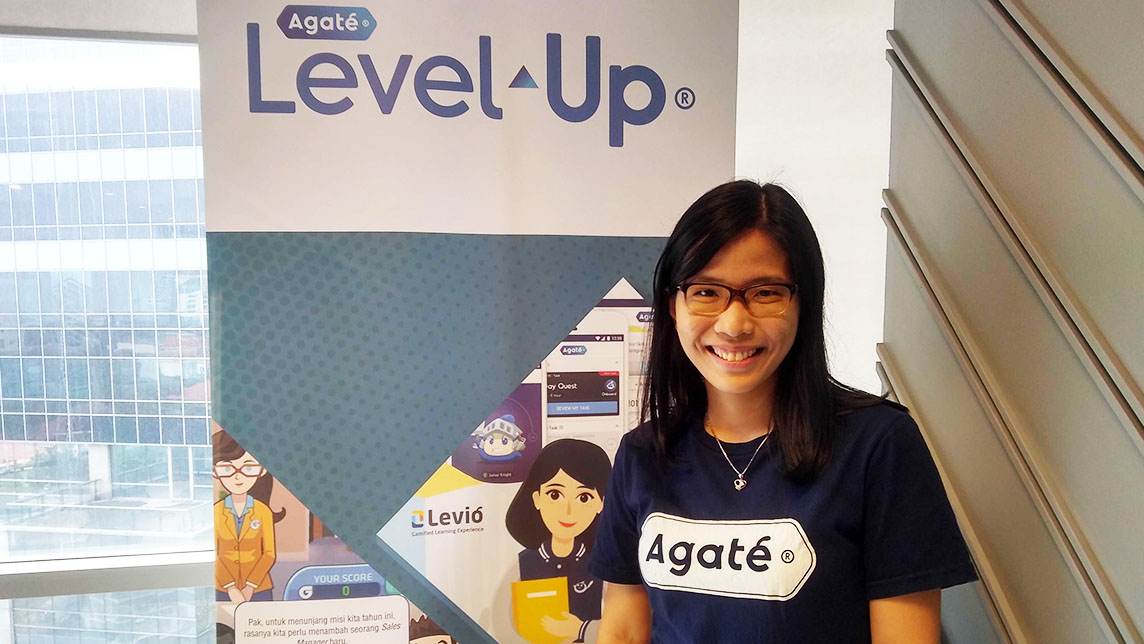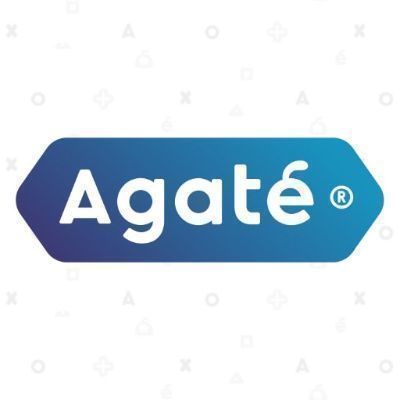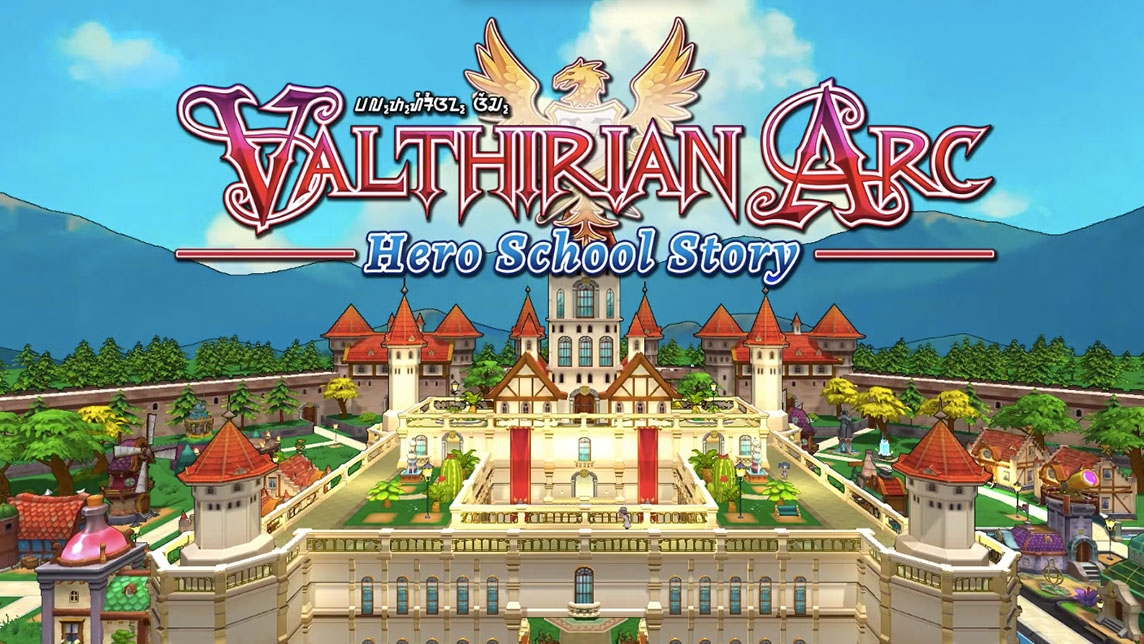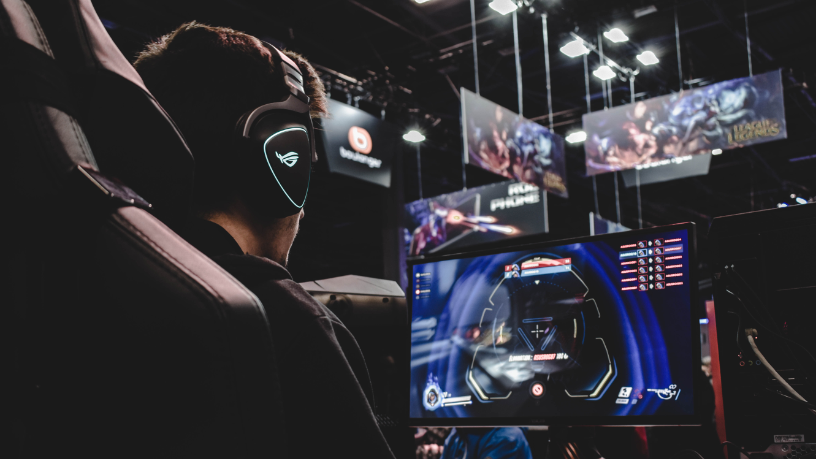Like so many startups, the founders of the Indonesian game development company Agate started out in 2007 as a gathering of like-minded university students. A group of Informatics undergraduates from the Bandung Institute of Technology (ITB), including Shieny Aprilia and Arief Widhiyasa, shared a passion for video games. Their love of gaming soon evolved to the point that they decided to create their own game for a Microsoft-sponsored competition.
"Through word of mouth, we started something like an 'open recruitment' process,'' even reaching students in ITB's Design Department, Shieny said. News of the nascent venture also reached Fandry Indrayadi, who was in high school at the time and eventually became a creative director for Agate's latest game, Valthirian Arc: Hero School Story.
At its peak, the team had 30 members, but along the way some left to pursue other interests and fulfill other commitments. As their graduation approached, the team's remaining members decided they would take their game-making to the next level and make a living from it. In 2009, Agate was established as a limited partnership, and two years later they incorporated it, with Arief as CEO. The company now has more than 200 employees.
From Flash to phones
In the beginning, Agate made games on Adobe Flash and sold them to online gaming websites like Kongregate, following the same strategy as fellow Indonesian developer Toge Productions, which was also established in 2009. At the time, such websites would buy the rights to put their logo or revenue-earning advertisements on the game.
Flash games, however, soon became less attractive to game-makers. "Around 2011, there was a change in Google's policy that limited the ability of platforms to earn money and consequently buy more games to feature," Shieny recalled. Flash was eventually abandoned as a platform, and Agate switched to games that were hosted on Facebook and social media websites.
The change taught Agate that game development is not just about making fun games. "We learned how to make games that can encourage people to make in-app purchases in free games, even if it's not actually necessary to pay anything in the games," Shieny said.

Today, with free-to-play mobile games in the spotlight, Agate continues to seek new ways to attract new players and audiences. The company recently collaborated with CIAYO Corp, an Indonesian media publishing company, to create CIAYO Stories, a platform for interactive stories targeted at young women. Another recent release is Onet Asli, which brought a classical picture-matching game to a modern audience.
Riding the wave of popularity of e-sports, Agate is currently working on an e-sports team simulator, where players will manage an online team of professional gamer avatars, leading them to victories and worldwide fame. "E-sports is really big in Indonesia right now, but few people can actually become professional-level players. Hopefully this game can be an outlet for e-sports fans to experience what it's like at the pro level," Shieny told CompassList, adding that the title of the game has yet to be decided.
Going corporate
The team at Agate believes that games have potential to go beyond entertainment. As gamers themselves, they know how the games they've enjoyed through the years have helped them learn new skills and even languages. "Many of us learned English through video games," Shieny said. "Some of us even made the effort to learn Japanese because we wanted to play games only available in Japanese."
Starting from 2010, Agate worked with corporates to "gamify" the process of training employees. This involved smaller projects to create game-like training modules. In 2017, Agate also released Levio, a learning platform where employees "level up" as they progress through the learning materials. By using concepts like levels, scores and experience points, employees get a clear sense of their progress and are kept fully engaged.

Agate has also used virtual reality (VR) and augmented reality (AR) to help companies in their marketing efforts. In one project commissioned by Indonesia's national insurance program for employees, BPJS, Agate created a VR experience where players would walk on a narrow beam between two skyscrapers. The experience ends with a virtual fall from height and a message from BPJS about workplace risk coverage.
The mission: have fun
Today, Agate is organized into four business divisions: mobile free-to-play games, premium/paid games for PC and console, corporate gamification and brand content creation. However, the company's mission remains the same: deliver happiness. "The many changes throughout our development taught us how to be flexible in finding new ways to survive," Shieny said.
"In our team culture, the foundation is not to mindlessly pursue goals like having many downloads or turning profits," Shieny said. "We need to have the endgame in mind, envisioning how users would spend their money, and making their purchases worth it, so it can make the product sustainable as a business," she added.
What's next from Agate? Shieny said that on the corporate side, they are working to find more companies that are interested in gamifying their employee training processes. The market for such programs is growing as millennial-aged executives increasingly become involved in corporate decision-making. "We've been receiving positive feedback from them about our products," Shieny said. "Many of them also play games, so they understand the value of making learning enjoyable."
As for their consumer-oriented games, Shieny hints at two major projects coming up. The first, which Agate plans to release by the end of this year, will be "a sequel of an existing game," although she was reluctant to provide further information. The second will be a game with "a bigger title than Valthirian Arc" that is currently in pre-production.
"It's something that will really showcase Indonesia to the world. We hope that more people outside of Indonesia, outside Asia, will become interested in Southeast Asian culture" after playing the games, she said.















